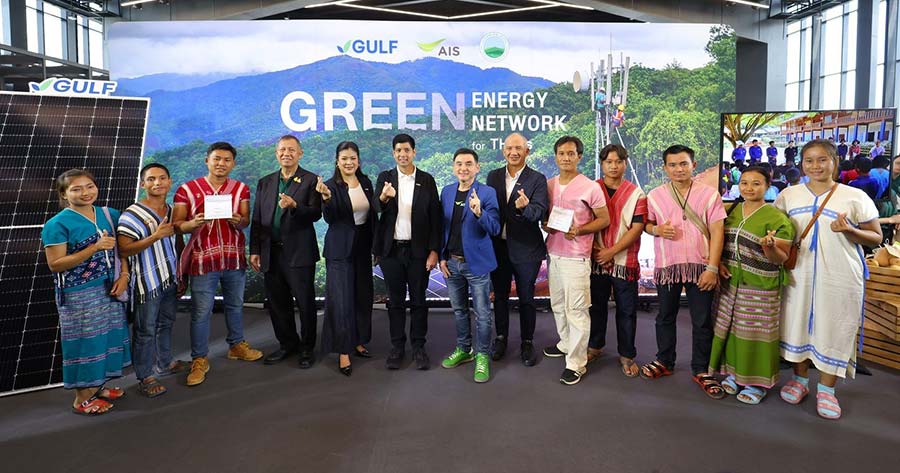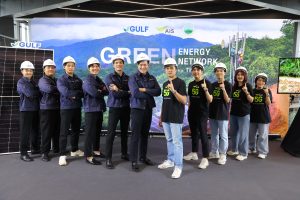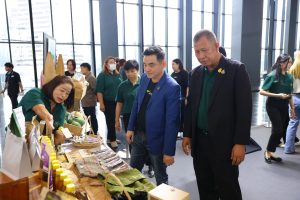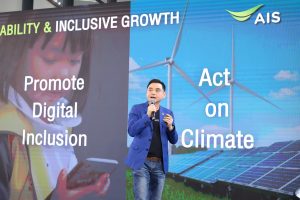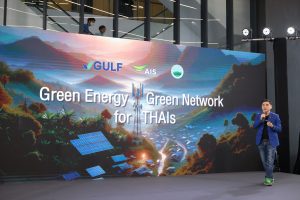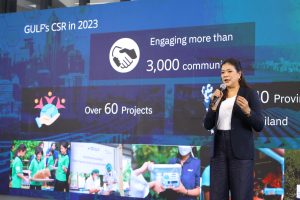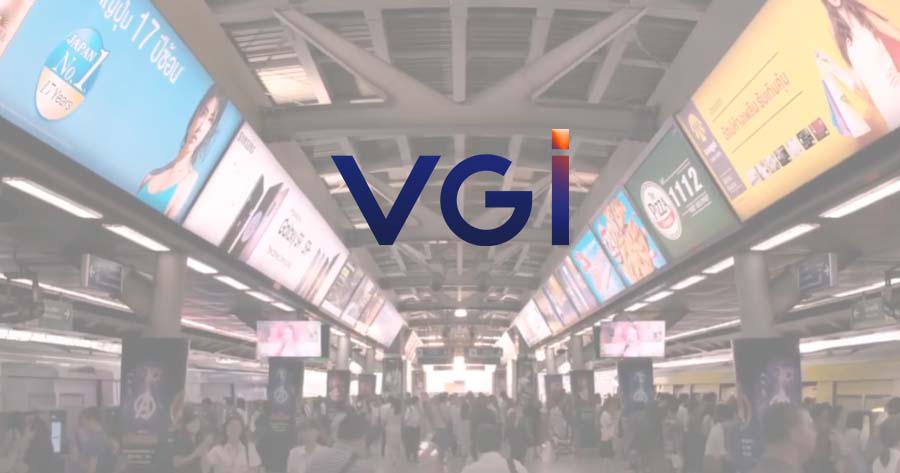Gulf Energy Development Public Company Limited, or GULF, a leading regional organization in sustainable energy and infrastructure, has joined forces with Advanced Info Service Public Company Limited, or AIS, a leading digital network provider in Thailand, and the Highland Research and Development Institute (Public Organization), or HRDI. Together, they are advancing efforts to improve the quality of life for Thai people in remote areas by providing access to essential infrastructure services.
This collaboration leverages the strengths of both private sector entities and integrates with the public sector, specifically HRDI, which plays a significant role in the socio-economic and environmental development of the country’s highlands. The initiative aims to deliver solar power-generated electricity to communities, installing solar-powered base stations to create digital network systems for these areas.
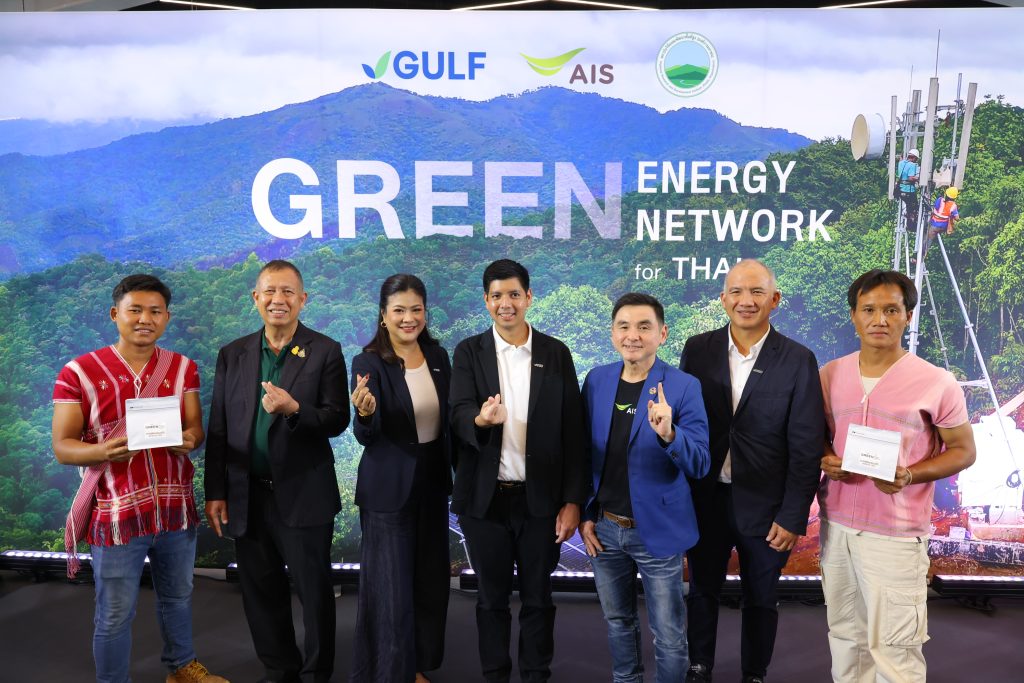
Through the “Green Energy Green Network for THAIs” project, two remote areas will be piloted: Ban Dok Mai Sod community and Moko Poke community in Mae Usu subdistrict, Tha Song Yang district, Tak province. The collaboration aims to expand the project continuously into other remote areas lacking essential electricity and telecommunications infrastructure. The goal is to reduce inequality, improve the quality of life, and foster sustainable economic growth within these communities.
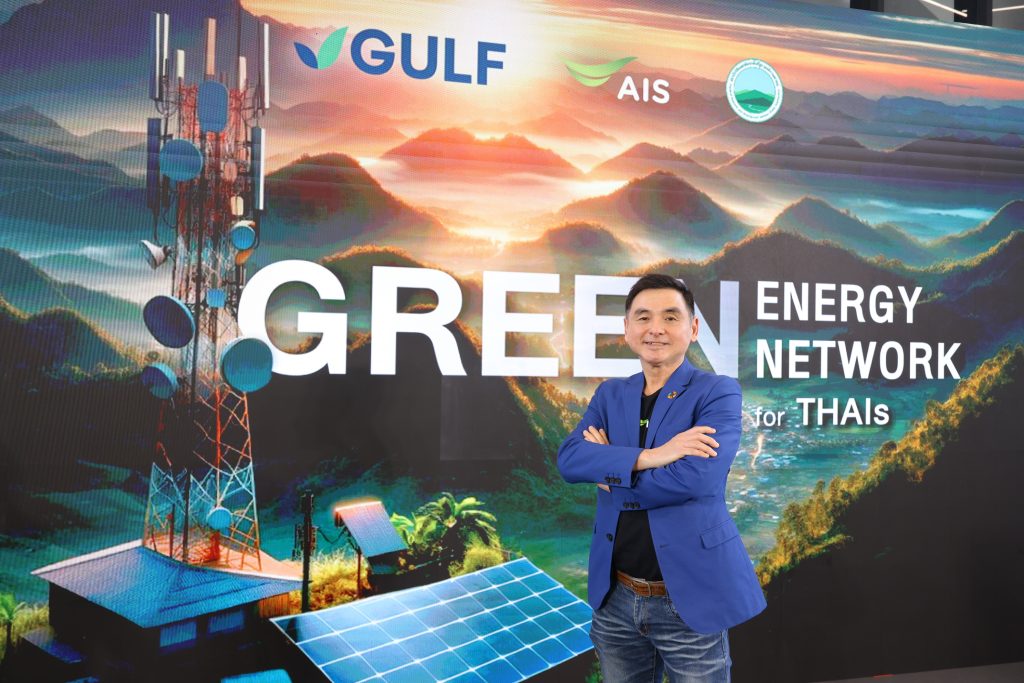
Mr. Somchai Lertsuthiwong, CEO of Advanced Info Service Plc. or AIS, further explained, “With our commitment to becoming a Cognitive Tech-Co, AIS has continuously advanced the development of robust digital infrastructure. We are now well-equipped to collaborate with all sectors to foster shared economic growth (Ecosystem Economy). We firmly believe that digital network technology is a crucial tool for driving the economy and creating opportunities for people to access new knowledge, enhancing their lives in many valuable ways amidst changing circumstances.
“Working with GULF and HRDI reinforces AIS’s commitment to sustainable business practices in all areas, including the development of digital networks to drive community economies. We are breaking down barriers to expand our network coverage, ensuring digital access for all Thais. By utilizing technology and renewable energy sources, such as solar cells, we can efficiently manage communication systems and deliver digital networks to targeted communities. This allows people in remote areas to communicate conveniently and access knowledge and services that benefit the economy, society, education, healthcare, and government welfare. AIS and its partners will continuously monitor changes in each community through Social Impact Assessment, evaluating the project’s benefits in reducing social inequality. This ensures that the development is effective and truly sustainable, aligning with the community’s context and wisdom.
For example, the Moko Poke community, one of the beneficiaries of this project’s solar power and digital communication systems, will have opportunities to develop knowledge in coffee bean production and enhance their marketing channels. This aligns with the community leaders’ goal of transitioning from corn farming to coffee bean cultivation, aiming to introduce high-quality coffee beans to a broader market, thereby providing stable income for the community.”
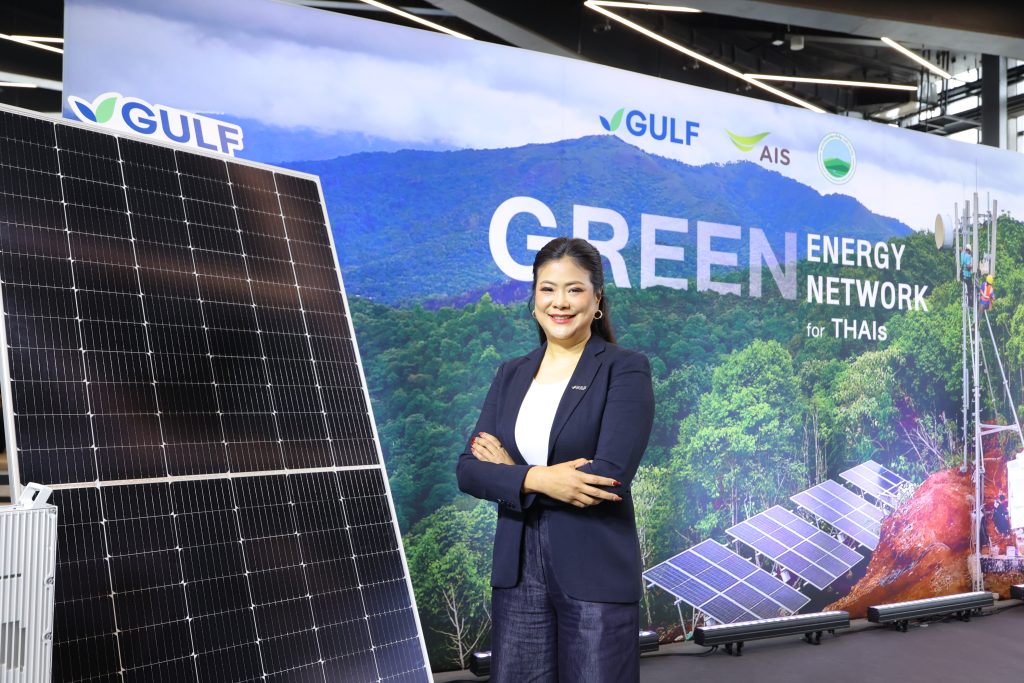
Ms. Theerathiphisa Tawichpasoot, Chief Operating Officer of GULF, shared, “In 2023, GULF, along with its subsidiary GULF1, embarked on a mission to bring clean energy and connectivity to underserved communities. The initiative began with pilot projects installing solar panels in three remote areas: Baan Huai Nam Sai (Phitsanulok Province), Thung Nang Dam Island (Phang Nga Province), and Baan Dokmai Sod (Tak Province). GULF1 engineers helped install the systems and trained residents on their use and maintenance, fostering long-term sustainability. Recognizing the communication challenges faced by these communities, GULF joined forces with AIS, a leading telecom provider, to expand the project’s scope. This collaboration aims to bridge the digital divide while providing clean energy. It strives to reduce disparities, enhance education and career development and elevate public health services, all in a move to drive a low-carbon future.
This year, the project expanded to three new locations: Doi Moko Poke (Tak Province), Ban Mae To La (Mae Hong Son Province), and Ban Phi Pan Nuea (Chiang Mai Province). For Doi Moko Poke, villagers previously relied heavily on corn farming, a practice that led to deforestation and respiratory health problems due to chemical use and PM2.5. GULF, in collaboration with the community leader, supports efforts to conserve the local forest and sustainable coffee production. GULF, therefore, partnered with the community for coffee bean cultivation by building a greenhouse for processing beans and installing a solar power system to enhance the quality of cleaning, sorting, and coloring. This empowers villagers to participate in the coffee value chain, generating income and building long-term economic resilience. Furthermore, in March 2024, GULF facilitated a knowledge exchange trip for Doi Moko Poke villagers to Chiang Rai, equipping them with valuable skills in product development and market understanding. This holistic approach empowers the community to thrive while promoting environmental sustainability.”
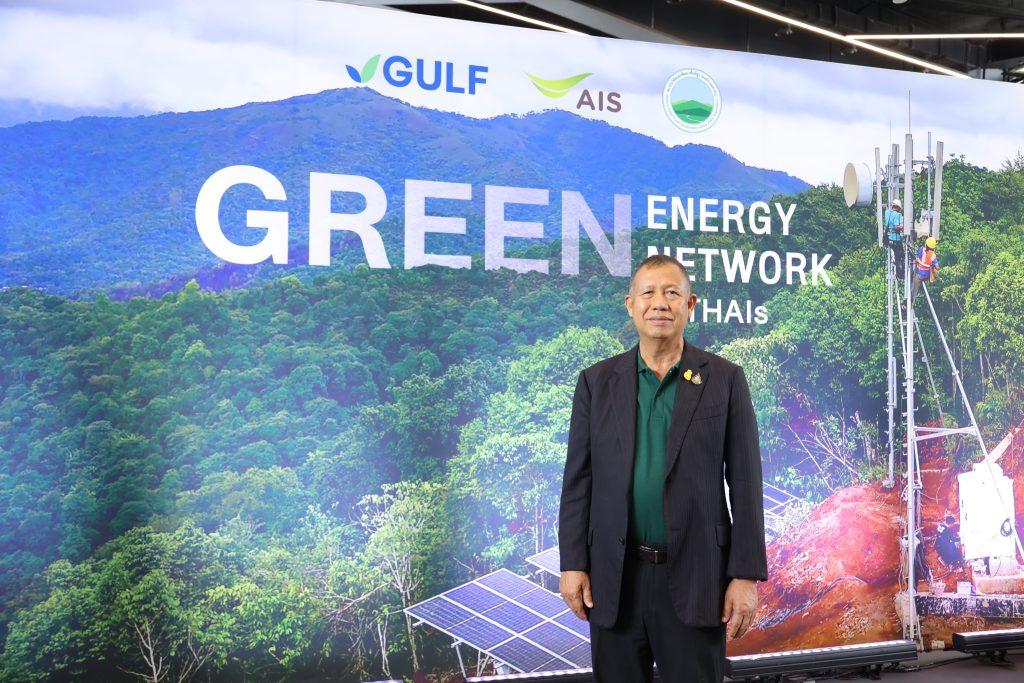
Mr. Chavalit Chookajorn, Chairman, Board of Directors, HRDI stated, “HRDI’s important mission is to apply the knowledge from the Royal Projects to improve the well-being of highland communities in the country, enabling them to use this knowledge in environmentally friendly occupations and become self-reliant. Furthermore, HRDI facilitates access to basic infrastructure services for highland communities by collaborating with various government and private organizations. The Green Energy Green Network for THAIs project, a collaboration between GULF and AIS, marks a significant beginning in providing highland residents with access to essential services such as solar power and communication. This project also opens up further opportunities for collaboration in healthcare, education, vocational skill development, and even marketing, ensuring an improved quality of life for these communities. It benefits the community and economy while promoting sustainable environmental conservation and restoration.”
Mr. Somchai concluded by saying, “We firmly believe that the Green Energy Green Network for THAIs project, Clean Energy Connecting Networks for Thais, will serve as an important model for Thai businesses. It demonstrates how the capabilities of organizations can be harnessed to address social issues, reduce inequality, and increase access to new knowledge and basic infrastructure services. This will lead to sustainable growth for people, communities, the economy, and the environment.”

